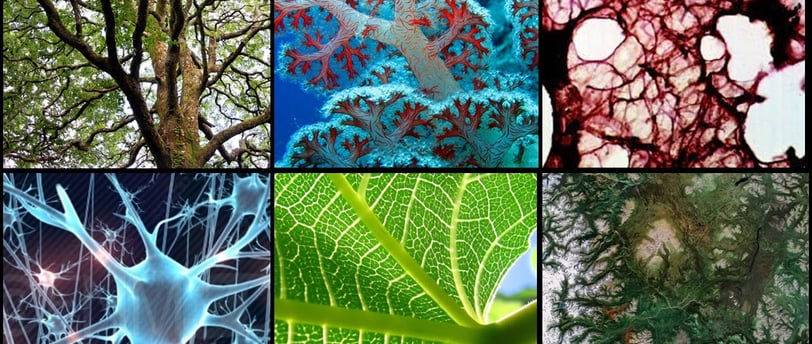Fractal Epistemology: Unifying Gödel’s Incompleteness with Kantian and Hegelian Limits of Knowledge
This paper introduces Fractal Epistemology, a conceptual framework that unifies Gödel's Incompleteness Theorems with the philosophical insights of Immanuel Kant and Georg Wilhelm Friedrich Hegel. The core idea is that the limitations Gödel identified in formal mathematical systems extend universally across various hierarchical systems—ranging from individual consciousness to societal structures and even the universe itself.
Juan I. Fernandez
8/31/20247 min read
This paper introduces Fractal Epistemology, a conceptual framework that unifies Gödel's Incompleteness Theorems with the philosophical insights of Immanuel Kant and Georg Wilhelm Friedrich Hegel.
The core idea is that the limitations Gödel identified in formal mathematical systems extend universally across various hierarchical systems—ranging from individual consciousness to societal structures and even the universe itself.
Building on Kant’s assertion of cognitive limits and Hegel’s theory of evolving knowledge, Fractal Epistemology proposes that the boundaries of what we can know are not fixed; they expand with our technological and cognitive advancements. The nature of this expansion is partially derived from the technological level of a species (or any system), which determines its maximum level of consciousness at a given point. Technology, by influencing productivity, effectively dictates how well we can minimize entropy (survive) at an individual and species level, which in turn impacts the extent of our freedom and the upper limits of our possible consciousness. The upper bound of the scope and scale of our possibilities and consciousness is a function of how well we minimize entropy at societal level. Just like Hegel described.
However, these dynamic boundaries are also inherently constrained by the recursive and systemic nature of knowledge, as described by Gödel. This recursive limitation implies that in any sufficiently complex system, there will always be truths beyond its scope—truths that cannot be fully understood unless one transcends the system itself. Hence, understanding any system—whether it be the human brain, societal constructs, or the cosmos—requires a form of transcendence. This transcendence is akin to navigating between levels of a fractal, where each system is nested within a more complex structure.
Gödel’s Incompleteness Theorems illustrate that in any complex logical system, there are true statements that cannot be proven within the system itself, emphasizing the inherent limitations of formal systems of knowledge. Extending this concept, Fractal Epistemology argues that while our understanding can expand (as we have already described), absolute or complete knowledge remains elusive due to the recursive nature of these systems and the inherent challenges of transcending them. Which would be an increasingly unstable and difficult process, in and of itself, as the access to greater hierarchical systems advances.
As a corollary, to fully understand the universe, we must be able to access an even higher-level system, a notion that may seem counterintuitive at first. However, this idea becomes more apparent when we consider the hierarchical structure of systems within systems. For example, a kidney cannot fully understand itself without the rest of the body and the nervous system to analyze and understand its nature. Similarly, we might only fully comprehend the human brain if we transcend our human condition, potentially through some form of augmentation, such as AI-driven transhumanism. This requires us to transcend our "kantian" limitations, which are primarily dictated by our nervous system, the system we use to perceive and process reality (cognition and perception vectors). By doing so, we can gain a deeper understanding of the scope and scale of our existence.
Thus, Gödel’s incompleteness serves as a universal principle governing not only formal systems but also the progression of human knowledge and consciousness. While technological and cognitive advancements can push the boundaries of what is “knowable”, these boundaries will always be constrained by the systemic, recursive nature of knowledge itself. Unless we can identify and transcend a final, highest-level system—a possibility that remains uncertain—absolute knowledge will likely remain out of reach.
The emergence of AI and transhumanism supports Fractal Epistemology by aiming to extend human cognitive and perceptual capacities, potentially offering new insights into thought and behavior. Whether intentional or not, these advancements push the boundaries of human understanding. But we do not need to speculate about the future to have empirical validation of Fractal Epistemology. The history of human civilization exemplifies it well. Humans have developed external systems—such as language, markets, and the internet—that have enhanced their inherent capabilities. These dynamic and often decentralized systems (hayekian) evolved organically to manage complexity and decelerate entropy, thereby improving survival fitness, and in doing so, they exemplify the fractal nature of human evolution, where external systems are created to transcend and overcome initial limitations, thereby illustrating the recursive and self-referential structure of Fractal Epistemology. Furthermore, this ability to create and refine complex decentralized systems organically distinguishes humans from other species, particularly in terms of capacity to scale, to extract energy from the environment and, as a result, enabling leaps regarding its overall cognitive prowess and the understanding of the universe in which we are embedded. This process illustrates the fractal nature of human evolution and underscores the importance of leveraging diverse systems to overcome initial limitations.
Conclusion:
Fractal Epistemology asserts that the boundaries of knowledge are dynamic, evolving with the cognitive and technological advancements of a species. Initially, these limits are defined by the species' current developmental stage. As systems or species advance, they can transcend these constraints by creating external, complementary systems that enhance their capabilities. However, to fully understand a system, one must transcend it, which underscores the inherent limitations in overcoming both the current system and the higher-level systems it encompasses. This recursive, fractal structure highlights the ongoing and potentially insurmountable challenge of achieving complete knowledge. Absolute knowledge of the universe may be not only exceedingly difficult to attain but also fundamentally unattainable, as understanding the universe in its entirety requires transcending it.
Keywords: Gödel's Incompleteness Theorems, Kant, Hegel, Epistemology, Fractal Systems, Limits of Knowledge, Consciousness, Technology, UCEE, EECU, Existentialism, Entropy.


